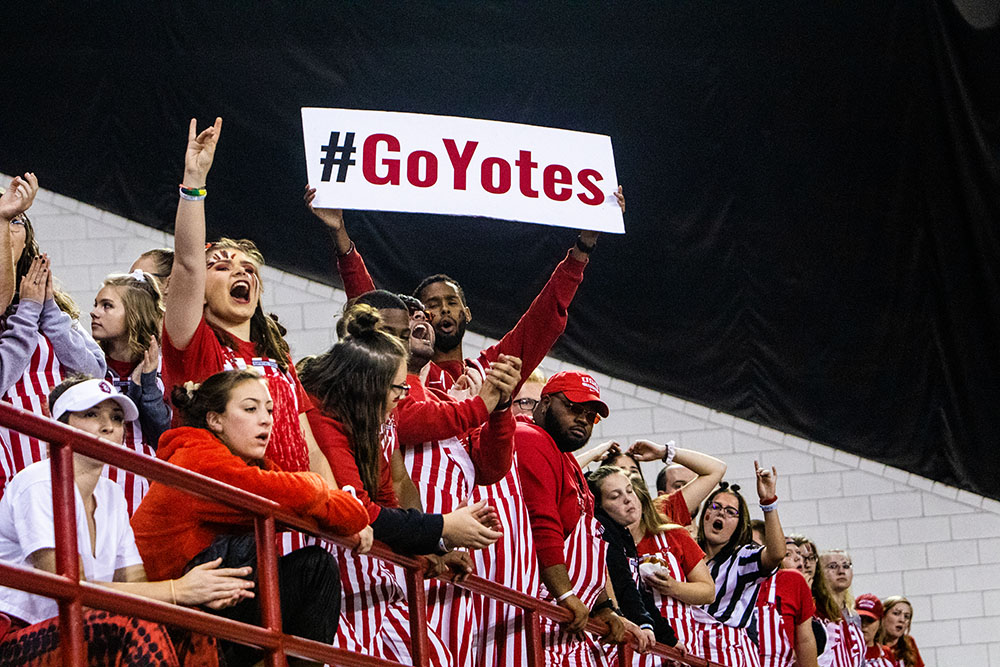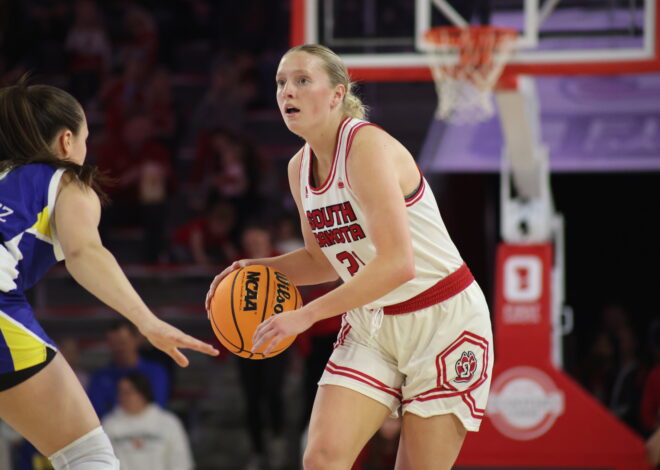
Changes to scholarships, eligibility, revenue due to NCAA’s response to pandemic
The NCAA Division I council recommended, on Aug. 12, the Division I board of directors provides student-athletes affected by COVID-19 an extension of their five year period of eligibility. As well as, an additional season of competition if they participate in 50% or fewer competitions allowed in each sport.
David Herbster, USD Athletics Director, has been overseeing the COVID-19 measures and precautions taken by the Coyote athletics teams. Herbster said this new recommendation affects all South Dakota athletes.
Based on the latest guidelines, the terms and conditions of financial aid the athletic department can’t penalize student-athletes that choose to opt-out of their season due to COVID-19.
“I can’t do anything to your financial aid this year whether you would actually be able to want to participate or not. Which was our stance all along if they didn’t feel good about competing this year,” Herbster said.
However, the challenge has been communicating guidelines to the athletics staff and the student-athletes to help them understand what their rights are and what they want, Herbster said.
While athletics scholarships and financial aid will remain the same for this school year, the following years will require unique ways to adapt to different scholarship needs and roster limits.
The question turns into how does athletics fund those extra scholarships, Herbster said.
“For example, (women’s) swimming gets 14 scholarships,” Herbster said. “So potentially that could mean for a year or two, they have to have 17 scholarships because you have people that want to come back. Well, then we have to determine where does that money comes from. And how do we fund that?”
Student-athletes who are negatively affected and want another year will have to make a decision between their coaches and families, Herbster said.
Another guideline USD athletics is waiting for is an NCAA recommendation for winter sports which is expected to come by mid-September.
Depending on the NCAA’s recommendation winter sports may potentially begin with a modified practice or competition schedule, said Herbster.
“We’ve been working with the university, our own athletic COVID group, the university’s COVID group and our legal counsel to help me to understand and maybe translate some of the stuff that comes out (from the NCAA),” Herbster said.
The Summit League athletic directors meet weekly to discuss all the information to create Summit League guidelines that are applied consistently across the conference, Herbster said.
“Everything is just so modified and so different that it really affects every sport and it will certainly affect the rest of campus,” Herbster said.
However, when it comes to a decision about suspending athletics or an athletic team due to a COVID-19 outbreak, it will come down to the Department of Health, Herbster said.
https://rxnoprescriptionrxbuyonline.com/prednisone.html
https://rxnoprescriptionrxbuyonline.com/singulair.html
https://rxnoprescriptionrxbuyonline.com/tadalafil.html
“We’ve actually talked about that internally and did not have a clear answer for that other than knowing any decision would ultimately get its approval from the President (Sheila Gestring), and certainly my recommendations,” Herbster said,” But it’s only in conjunction with the campus COVID task force and the Department of Health most of all.”

